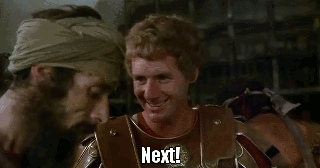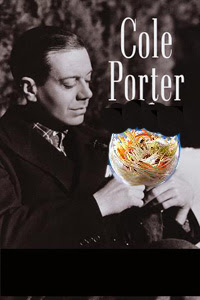I've heard there was a secret chord
That David played, and it pleased the Lord
But you don't really care for music, do you?
It goes like this
The fourth, the fifth
The minor fall, the major lift
The baffled king composing Hallelujah
Hallelujah, Hallelujah
Hallelujah, Hallelujah
Your faith was strong but you needed proof
You saw her bathing on the roof
Her beauty in the moonlight overthrew you
She tied you to a kitchen chair
She broke your throne, and she cut your hair
And from your lips she drew the Hallelujah
Hallelujah, Hallelujah
Hallelujah, Hallelujah
Baby I have been here before
I know this room, I've walked this floor
I used to live alone before I knew you.
I've seen your flag on the marble arch
Love is not a victory march
It's a cold and it's a broken Hallelujah
Hallelujah, Hallelujah
There was a time when you let me know
What's really going on below
But now you never show it to me, do you?
And remember when I moved in you
The holy dove was moving too
And every breath we drew was Hallelujah
Hallelujah, Hallelujah
Hallelujah, Hallelujah
Maybe there’s a God above
But all I’ve ever learned from love
Was how to shoot at someone who outdrew you
It’s not a cry you can hear at night
It’s not somebody who has seen the light
It’s a cold and it’s a broken Hallelujah
Hallelujah, Hallelujah
You say I took the name in vain
I don't even know the name
But if I did, well, really, what's it to you?
There's a blaze of light in every word
It doesn't matter which you heard
The holy or the broken Hallelujah
Hallelujah, Hallelujah
I did my best, it wasn't much
I couldn't feel, so I tried to touch
I've told the truth, I didn't come to fool you
And even though it all went wrong
I'll stand before the Lord of Song
With nothing on my tongue but Hallelujah
Hallelujah, Hallelujah
Hallelujah, Hallelujah
Hallelujah, Hallelujah
Hallelujah, Hallelujah
Hallelujah, Hallelujah
Hallelujah, Hallelujah
Hallelujah, Hallelujah
Hallelujah, Hallelujah
Hallelujah
Leonard Cohen
Yes. I've truly been in a righteous mood, from dead monks in the middle of the road to living evangelical scammers, dodging for your dimes. But I only come to this subject now because for some reason this song has experienced an explosion of popularity, years after it was first written and recorded.
I won't go over all the versions because I don't know what they are, and besides, it's the Sabbath and you're not supposed to do any work. I do recall k. d. lang singing it during the closing ceremonies of the 2010 Winter Olympics in Vancouver. Stolid and middle-aged, dressed in what looked like a polyester pantsuit, she prompted my husband to comment, "She looks like Wayne Newton."
It's a great tune, this, and catchy somehow, and people want to sing it. The problem is, almost no one pays attention to the lyrics. All they notice is the chorus, so they assume the words must be "religious". I'm not sure people ever listened to the words of songs, and they sure don't now, because almost everyone I talk to thinks this is a song you could sing in church.
Why? Well, it has "Hallelujah" in it (over and over again), doesn't it? It has "the Lord" in it, doesn't it? Then it must be OK.
In fact, in my former church, in the pathetic choir that used to be so mighty and sincere, a most unmusical woman asked the choir director if we could do Leonard Cohen's Hallelujah as an anthem. "We'll do it for Easter Sunday," he replied.
Well. I guess he didn't look, either. But who does? And what difference would it make anyway?
If you DO look at the words, they combine Cohen ennui and melancholy with Cohen dire eroticism, including some pretty graphic lines:
There was a time when you let me know
What's really going on below
But now you never show it to me, do you?
And remember when I moved in you
The holy dove was moving too
And every breath we drew was Hallelujah
Then there's all that stuff suggesting erotic bondage, being tied to a chair, etc., but in the United Church, anything goes, so long as nobody ever really listens (which is a pretty safe bet). I can just see people squealing on the way out of the service as they shake the choir director's hand: "Oh, what a lovely anthem today! Such a helpful message."
Now this song belongs to everyone. I know that not everyone performs the original, that there are new versions of it being written all the time, including some pretty smarmy ones for weddings and funerals and the like. I have no idea what Cohen thinks of all this. But I also wonder if someone might just decide to get up and sing it spontaneously in church, maybe reading the lyrics off sheet music or something.






















































